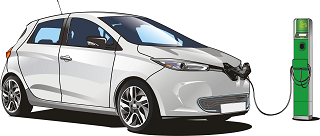
Environmental pollution has reached almost the threshold level in India. As per the Climate Risk Index 2020, India ranks in the top 5, which means India is vulnerable to climatic change. So, there seem no other option than to adopt e-mobility.
To mitigate environmental issues, the Government of India decided to promote Electronic Vehicles (EV) to reduce pollution.
However, as per a Castrol report, the new car owners wouldn’t be buying EVs until 2030 because of several factors.
Proper infrastructure is one of the critical factors. But whatever the cons are of using and promoting EVs on Indian roads, the overall electric cars on the Indian roads will be almost 100 million in the financial year 2030 from just a half million in the financial year 2020.
But what are these electric cars or EVs?
Electric cars are the most recent addition to the automobile industry which run on electricity rather than fuels like petrol and diesel.
The electric cars’ batteries can be charged for reuse. There are three types of Electric Vehicles available in India as of now. They are-
- Entirely battery-operated electric cars
- Solar-powered electric cars
- Hybrid electric cars
CURRENT SITUATION
Since 2010, EVs have started becoming popular apart from public transports. The most surprising fact is that by 2016 September, almost 1 Million electric vehicles were delivered globally.
This was the turning point of the global acceptance of electric vehicles. The speed to acceptance was so good that by 2019, almost 4.8 million cars were sold, and by 2020, it reached 10 million units.
MARKET SHARE OF ELECTRIC VEHICLES
As electric vehicle manufacturing is becoming popular every day, its market share is also expected to rise greatly. India’s GDP is expected to grow by an amazing 25% by 2022.
The best part is that, apart from reducing environmental pollution, EVs can lower oil imports by about $60 Billion by 2030. Currently, 82% of the oil demand in India is fulfilled by imports. So, it’s evident how much beneficial the Indian economy will be if this import cost is reduced.
COST
Surprisingly, the fuel price of EVs can be as low as only 1.1Rs/ km. As a result, the overall cost of about Rs 20,000 is reduced while travelling every 5000 km by an EV. Also, it will reduce vehicular emission, which otherwise creates a 3% GDP loss every year.
TOP ELECTRIC VEHICLES(EV’s) MANUFACTURERS IN INDIA
As the EV market is growing exponentially in India, car and bike manufacturers are gradually inclined to manufacture more electric-run vehicles.
- Mahindra Electric
Mahindra Electric is the forerunner in the EVs industry. They manufactured their first EV in 2001. Mahindra E20 and eVerito are the two popular EV variants by Mahindra Electric.
- Tata Motors
Though a popular name in the Indian automotive industry for manufacturing vehicles for personal use, public transports, and other purposes, Tata Motors is comparatively new to the EVs segments.
Tigor EV, Nano EV, and the Tiago electric variant are some of Tata motors’ popular EVs. However, Tata has focused mainly on Passenger Vehicles and electric busses. The demand for this segment of vehicles is expected to reach 4 Lakhs soon.
- Hyundai
Hyundai, with the launch of its Kona EV in India, has overwhelmed the EV market. The EVs by Hyundai is supposed to run 452 km in one charge. It answers the query of all vehicle enthusiasts in India, asking the question, “what’s the mileage given.” However, the model is about to hit the market in 2-3 years.
- Ashok Leyland
Ashok Leyland has developed busses and trucks based on Indian road requirements. They have introduced battery swapping for India and operating vehicles like the Circuit, HYBUS, Electric Euro 6 Truck, and announced the bus.
“TESLA” IN INDIA
In this year, 2021, the American company Tesla is launching Tesla cars in India, as per Nitin Gadkari, The Minister of Road Transport and Highways, Government of India.
The Government of India targeted to install a renewable energy capacity of 175 GW by the end of 2022. This includes 10 GW from bio-energy, 100 GW from solar power, 5 GW from hydropower, and 60 GW from wind.
At the United Nations Climate Action Summit, Prime Minister of India Narendra Modi announced snowballing the renewable energy target to 450 GW by 2030 from 175 GW by 2022.
With these highlights in mind, it is understandable that the Government is accelerating electric vehicles’ promotion, which will consume less non-renewable sources of energy, rather than focus on battery charging and emission-free transport.
So, in this scenario, the promotion of TESLA cars in India is a good option for the American company owned by Elon Musk.
However, the subsidy provided to the Indian companies is much higher that can result in the manufacturing cost of the parts of the local companies being cheaper than the TESLA one.
PROS OF USING AN ELECTRIC VEHICLE(EV)
- Environment first:
The air pollution in urban Indian cities can be reduced to a great extent with Electric cars. These cars use batteries that do not do emissions like the internal combustion engines. Even due to having less or no sound, these vehicles help in reducing noise pollution as well.
- Lower Operational Cost:
It is estimated that almost 75-80% of fuel expenses are reduced by using EVs. Compared to the other conventional cars, EVs have 75% fewer movable parts that also create a much lesser maintenance bill.
- A good amount of savings:
As India’s Government is inclining towards higher usage of EVs, different incentives and tax relaxations are offered to encourage more buyers.
CONS OF ELECTRIC VEHICLES(EV)
- Costly:
EVs are a bit more costly since it has lower maintenance costs; as the parts are small and not ample in number in the Indian landscape, the repairing cost increases.
- Infrastructure issues:
The scenario in which EVs are expected to operate is still in an ideal condition. There is no ample battery charging centre or car repair centre, and even manufacturing centres in India. With proper infrastructure built gradually, more vehicle owners are expected to incline towards buying EVs.
- Post Sales service:
As EVs have not become too popular in India, the post-sales service is also a bit poor compared to conventional petrol and diesel cars.
- Poor road condition:
As the road condition in India is poor, hence the longevity of the cars becomes less. Also, the drivers need to be trained and well-aware while driving these cars.


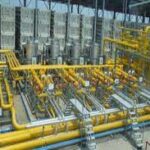
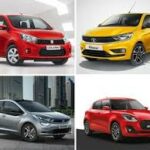
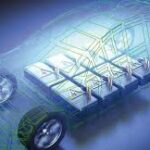
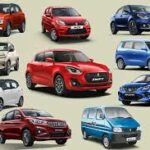
[…] Home […]